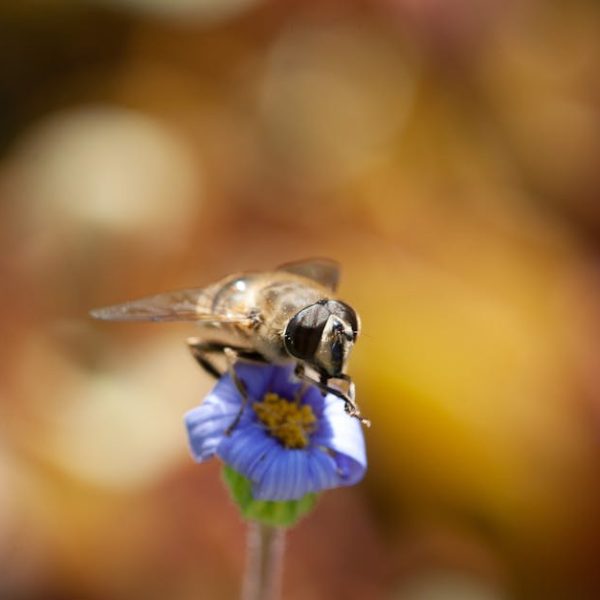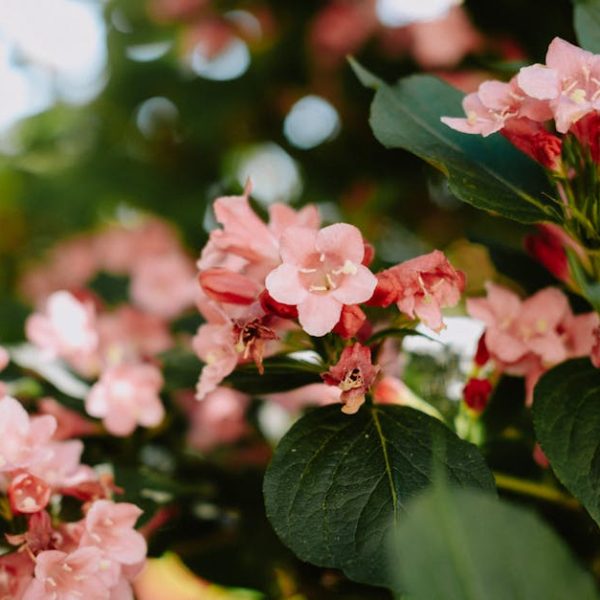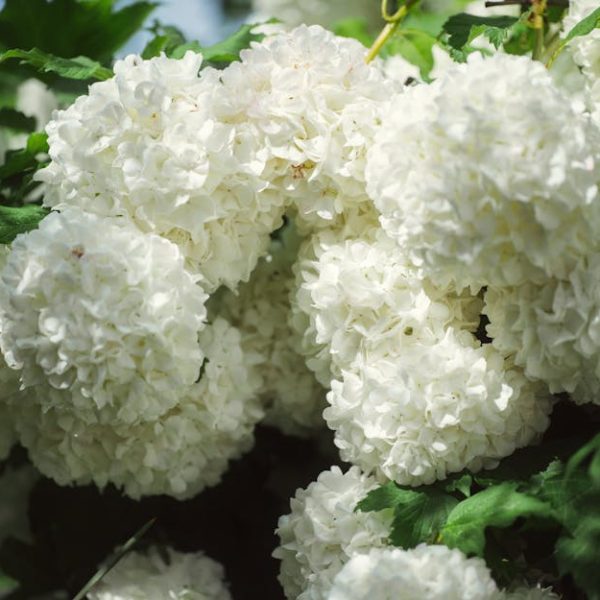When it comes to keeping mosquitoes at bay, nature herself offers some of the best solutions. Not only are many plants equipped with organic mosquito-repelling abilities, but they also enhance the appeal of your home and garden. The wonderful aroma that these plants emanate serves not only to uplift your spirits but also as an effective barrier against pesky mosquitoes.
The Miraculous Lemon Balm
Lemon balm, a member of the mint family, is a perennial herb with an appealing lemony scent, which mosquitoes find less than delightful. This plant contains high levels of citronellal, a compound that has excellent mosquito-repelling properties. Plus, growing lemon balm is a breeze; it thrives in well-drained soil, and you can easily grow it in full sun to shade.
In order to use lemon balm to your advantage, consider planting it in containers around your patio or other areas of your house where you’re likely to spend time outdoors. You can also crush the leaves and rub them directly onto your skin for an instantaneous, natural mosquito repellent.
Pro Tip: Lemon balm leaves make an excellent addition to DIY mosquito repellent sprays. Try combining the crushed leaves with witch hazel or alcohol for a homemade solution!
Citronella – The Classic Mosquito Repellent
Citronella is a low-maintenance plant with a robust aroma that mosquitoes despise. It’s the plant that commercial mosquito-repelling candles and torches are based upon, and for a good reason! While Citronella prefers full sun and well-drained soil, it can be nurtured in large containers where it can flourish.
Strategically placing your Citronella plants around the patio or deck can create a mosquito-free zone. However, bear in mind that while citronella is a top choice, it may not be as effective when compared to some other plants.
Lavender – The Elegant Repellent
Is there anything lavender can’t do? In addition to its lovely scent and beautiful blooms, lavender’s oil is disliked by mosquitoes, making it an elegant solution to your bug problems. This hardy plant prefers full sun and dry, well-drained soil.
A practical checklist for boosting your lavender’s mosquito repellency includes frequently pruning the plant to encourage new growth and encourage more oil production, and planting it as a border to your outdoor living spaces.
When compared to other plants, lavender’s repellent potency may not be as high. However, consider leveraging its multiple uses such as in cooking, potpourri, and personal care products in addition to its bug-deterring properties.
Marigolds – The Powerful Repellent
Marigolds are easy-to-grow annuals that produce a distinct smell which mosquitoes avoid. This is thanks to Pyrethrum, a compound found in marigolds that is used in many insect repellents. They do best in moderate to full sunlight and are quite versatile.
To get the most out of marigolds’ mosquito-repelling capabilities, plant them in pots near mosquito-laden areas such as doors and windows, or in your vegetable garden as they also deter other pests.
Remember, you don’t just need to plant them in the ground; marigolds thrive in pots too, which can be placed strategically to repel mosquitoes from areas of your garden where you sit and relax.
Basil – The Potent Repellent
Basil, an indispensable herb in the kitchen, is also an effective natural mosquito repellent. Its potent smell deters mosquitoes and other pests, making it useful beyond culinary purposes. Basil thrives in moist, well-drained soil and requires a lot of sunlight.
To utilize Basil as a mosquito repellent, grow them in pots near doorways, windows, or other accesses to your home to ward off mosquitoes. You can also make a quick DIY mosquito repellent by crushing its leaves and applying the essential oil on your skin.
Checklist for maintaining Basil plants:
- Do not let the Basil plant dry out. They need to stay moist.
- Make sure each plant has enough room to grow.
- Prune back the basil regularly for health and best yield.
- Add some organic fertilizer every few weeks.
Peppermint – Powerful and Refreshing
Peppermint, with its strong, invigorating smell, is a potent mosquito repellent. Although best known for its culinary and medicinal properties, its minty aroma is delightful to humans but detested by mosquitoes. This plant prefers full sun to partial shade and moist, well-draining soil.
One effective way to use peppermint as a mosquito repellent is by creating a homemade spray. Crush the leaves to release the essential oil, and mix it with water in a spray bottle.
Interestingly, when compared to other mosquito-repelling plants, Peppermint can double up as a soothing remedy for existing mosquito bites thanks to its cooling effect.
Catnip – Not Just for Cats
Catnip, a member of the mint family, has been found to be incredibly effective at repelling mosquitoes. In fact, some studies suggest that it can be more effective than DEET, the chemical commonly found in commercial insect repellents. It thrives in full sun or partial shade and prefers well-drained soil.
Use Catnip in your garden or home by planting it in areas where you spend time outside. It also repels ants, aphids, cockroaches, and weevils. However, as the name suggests, it may attract cats to your garden!
Garlic – More than a Culinary Herb
The strong odor of garlic is a known mosquito deterrent. Garlic is easy to grow, requiring full sun and a well-draining soil. Crushed garlic can be rubbed onto skin or clothes, or you can add it to your garden as an all-natural mosquito repellent.
Incorporate garlic into your gardening plans to keep mosquitoes away. However, while effective, compared to other mosquito-repelling plants, garlic needs to be crushed to release the repellent properties, limiting its passive effectiveness.
Geranium – A Beautiful Deterrent
Certain varieties of Geranium, especially the lemon-scented or citronella geraniums, are known to naturally repel mosquitoes. They have beautiful blooms and a strong fragrance, which wards off many types of insects. They require rich, well-drained soil and lots of sunlight.
For mosquito control, plant them in flower beds or in pots around your home. However, be aware that their mosquito-repelling effectiveness is lesser compared to plants like Citronella or Lemon Balm.
Fennel – The Unexpected Repellent
Fennel, while being a robust spice and medicinal herb, is disliked by mosquitoes and flies, making it a great addition to any bug-free garden. Fennel is a large plant that loves sun and requires well-draining soil.
To use Fennel as a mosquito repellent, you can either plant it in your garden or use its seeds in homemade repellent sprays. However, the effectiveness of Fennel in repelling mosquitoes is more subtle when compared to potent plants like Citronella and Basil.
With many options to choose from, consider incorporating some, or all, of these plants into your garden and declining mosquito populations naturally — and aesthetically!
Key Takeaway:
- Many plants, such as the Lemon Balm, Citronella, Lavender, Marigolds, Basil, Peppermint, Catnip, Garlic, Geranium and Fennel, have amazing mosquito-repelling properties that can be harnessed.
- Most of these plants are easy to grow and require similar growing conditions, such as well-drained soil and substantial sunlight.
- Several plants offer additional benefits like medicinal properties and enhancement of culinary dishes, apart from being mosquito repellents.
- Almost every plant can be used to make homemade mosquito repellents, and their strategic placement around the house can create mosquito-free zones.
- Each plant has its own potency in repelling mosquitoes, and using a mix of these plants can maximize the repellent effect and enhance the aesthetic appeal of your garden.
These plants offer a natural, attractive, and fragrant way to keep mosquitoes at bay. Enjoy the outdoors without being besieged by mosquitoes by thoughtfully incorporating these plants into your garden, patios, and indoor spaces. With so many options to choose from, there’s surely a bug deterring plant adaptation to suit everyone’s aesthetic and functional needs.
FAQs
Q: Do these plants repel mosquitoes just by being present in the garden?
A: Some plants can repel mosquitoes just by being present. However, others need to be crushed or their oils extracted and applied to your skin or sprayed in your surroundings for the maximum repellent effect.
Q: Are these plants pet-friendly?
A: Most of the plants mentioned are generally safe for pets. However, it is essential to do your own research or consult with a veterinarian as some plants may be harmful to certain animals.
Q: How effective are these plants compared to commercial insect repellents?
A: Commercial insect repellents often contain strong chemicals that could be harmful. While these plants may not be as immediately potent, they offer a natural, safer, and more sustainable solution to mosquito problems.
Q: Can I grow these plants indoors?
A: Most of these plants can be grown both indoors and outdoors, considering they receive ample sunlight and are well-drained.
Q: Can these mosquito-repellent plants repel other insects as well?
A: Yes, many are broad-spectrum insect repellents. For example, Marigolds repel aphids and Catnip is effective against ants, cockroaches, and weevils.
Remember, sharing is caring! If you found this article informative, don’t forget to share it with your friends and family. Explore our website for more articles on gardening tips and tricks.






